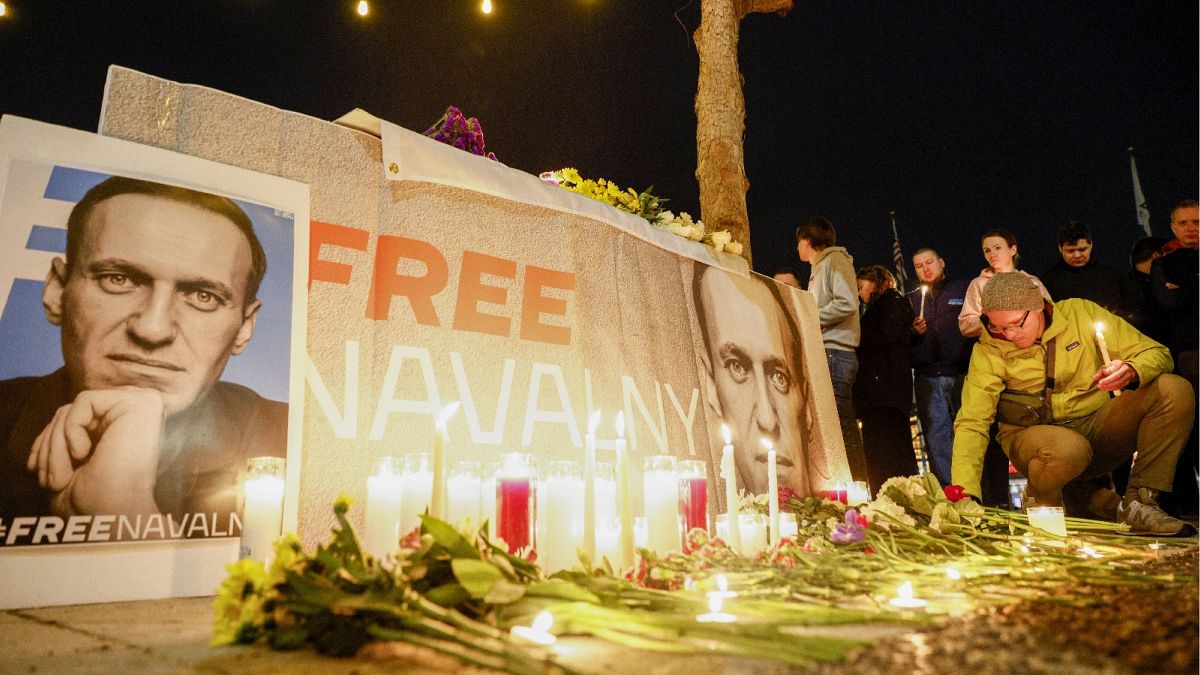Navalny was arrested in 2021 upon his return to Russia from Germany where he had been treated for a suspected assassination attempt by poison.
Kremlin critic Alexei Navalny has died in prison, Russian authorities announced on Friday. He was 47.
A statement from the prison service of Yamalo-Nenets, where Navalny was imprisoned, said he "felt unwell after a walk, almost immediately losing consciousness."
It detailed that medical workers arrived "immediately" and "all necessary resuscitation measures were carried out," but they did not "yield positive results."
"Emergency medical doctors confirmed the death of the convict," the statement added.
Navalny was a lawyer turned blogger, YouTuber, protest organiser, anti-corruption activist and face of Russia's opposition.
The 47-year-old gained notoriety by criticising President Vladimir Putin and his inner circle whom he accused of vast corruption and opulence.
According to a statement cited by Russian state news agency TASS, Putin has been informed of his foes' demise, though has no additional information about his death.
Russian government spokesman Dmitry Peskov is also quoted by TASS as saying that the federal prison service is making all necessary checks regarding his death.
'No confirmation of this yet'
Navalny's team, however, said that they have not had confirmation of the politician's death.
"Alexei's lawyer is now flying to Kharp. As soon as we have information, we will report it," Navalny's spokesperson, Kira Yarmysh wrote on X.
Navalny's chief of staff, Leonid Volkov, described the prison services' announcement as "a confession that they have killed" him, cautioning however that they have not yet had confirmation.
Russian newspaper editor and Nobel Peace Prize laureate Dmitry Muratov told Reuters on Friday that the opposition figure's death was "murder", claiming that harsh treatment had caused his demise.
"My sincere belief is that it was the conditions of detention that led to Navalny's death ... His sentence was supplemented by murder," Muratov said, offering condolences to his family.
Navalny was arrested in 2021 upon his return to Russia from Germany where he had been treated for a suspected assassination attempt by poison. He was immediately incarcerated and sentenced to 19 years in a penal colony on charges of extremism.
Navalny had initially been serving his sentence in the Vladimir region of central Russia, about 230 kilometres east of Moscow.
But he was transferred late last year to a "special regime" penal colony - the highest security level of prisons in Russia - above the Arctic Circle.
'Killed by the Kremlin's brutality'
Leaders around the world have condemned his death.
Ukrainian President Volodymr Zelenskyy said it was "obvious" Putin was behind Navalny's death, during a meeting in Berlin with German Chancellor Olaf Scholz.
Zelenskyy said the Russian president does not care who dies so long as his position as the head of the state is secure.
"Whatever story they tell, let us be clear: Russia is responsible," said US Vice President Kamala Harris at the Munich Security Conference.
Writing on X, UK foreign secretary and former Prime Minister David Cameron said Putin should be held accountable for what had happened.
"Navalny fought bravely against corruption. Putin’s Russia fabricated charges against him, poisoned him, sent him to an arctic penal colony & now he has tragically died," Cameron added.
Several EU leaders also pinned responsibility directly on Putin's Russia.
"This terrible news shows once again how Russia has changed and what kind of regime is in power in Moscow," said German Chancellor Olaf Scholz.
French President Emmanuel Macron added: "In today's Russia, free spirits are sent to the Gulag and condemned to death. Anger and indignation."
Condemnation and condolences also flooded in from the Belgian, Czech, Dutch, Polish, Spanish and Swedish capitals, as well as from Russia's neighbouring Baltic countries.
Alexei Navalny had a few health scares since he voluntarily returned from Germany to Russia in 2021.
He had been treated in Germany for what tests showed as nerve agent poisoning, with Navalny saying at the time he was poisoned in Siberia in 2020.
The Kremlin denied trying to kill him.
In 2011, Navalny was asked by Reuters if he feared whether Putin would come after him.
"That's the difference between me and you: you are afraid and I am not afraid," he said. "I realise there is danger, but why should I be afraid?"
Scores of Kremlin critics, journalists and turncoat spies have died over the years in suspect circumstances.
Attacks range from the exotic — poisoned by drinking polonium-laced tea or touching a deadly nerve agent — to the more mundane of getting shot at close range.
